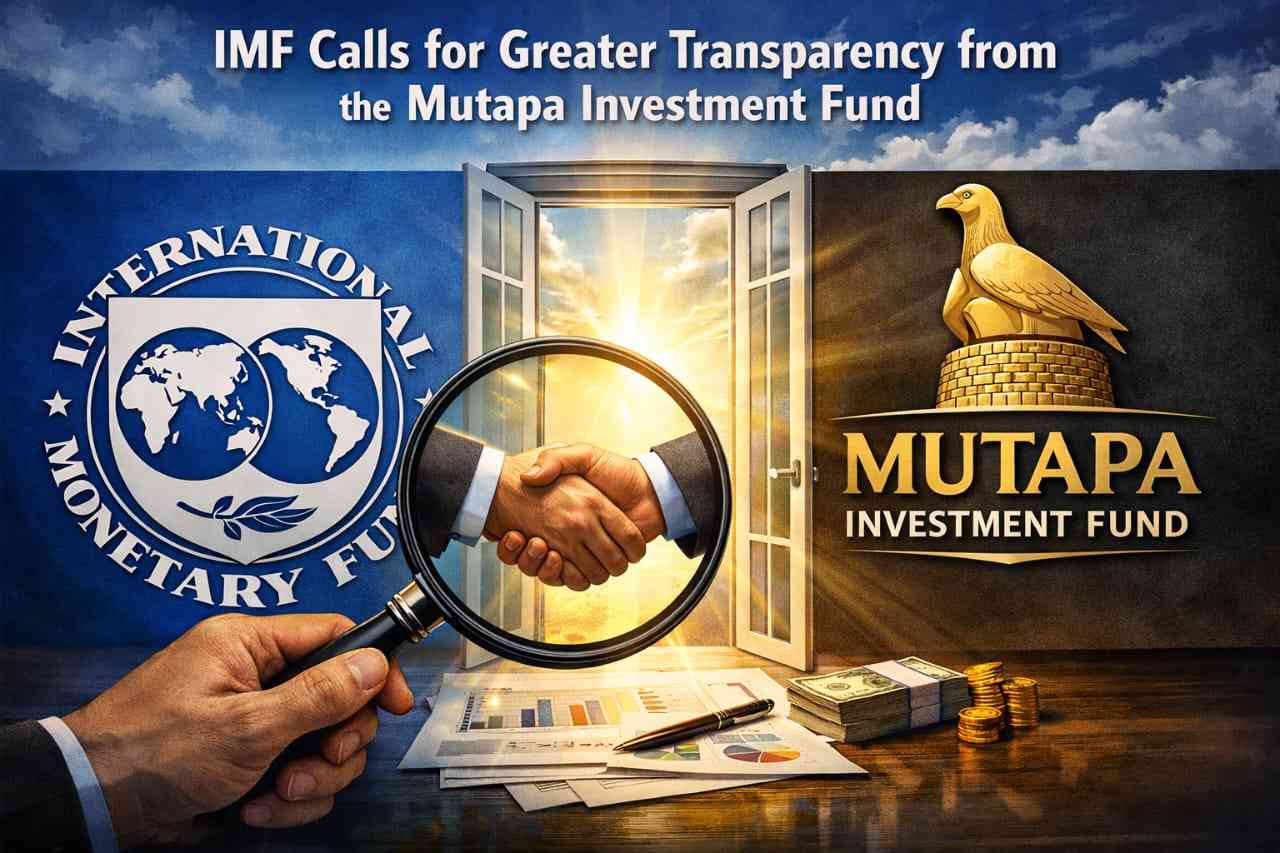
The US Federal Reserve’s interest-rate decisions ripple across the world — from Wall Street to Harare.
For Zimbabwean investors holding US-dollar assets, understanding these shifts could mean the difference between portfolio growth and painful losses.
The Fed’s influence beyond America
The Federal Reserve — the world’s most powerful central bank — doesn’t just shape America’s economy. It quietly determines how money moves across continents.
When it changes interest rates, it affects how easily people and businesses can borrow, invest, and spend.
For Zimbabwean investors with dollar-based accounts or US ETFs, the impact is immediate.
When rates fall, stocks usually rise, and global investors take on more risk.
When rates rise, investors rush toward safety, pulling money from emerging markets.
- Mavhunga puts DeMbare into Chibuku quarterfinals
- Bulls to charge into Zimbabwe gold stocks
- Ndiraya concerned as goals dry up
- Letters: How solar power is transforming African farms
Keep Reading
This global tug-of-war shapes everything from Harare’s exchange rate to the returns on your U.S. portfolio. Think of it this way:
“When the Fed moves, the world listens — because its policies touch every economy that trades in US dollars.”
October 2025: A key turning point
In October 2025, the Fed cut rates by 0.25%, marking its lowest level in three years.
The decision came as inflation eased, job growth slowed, and global supply chains stabilised. The S&P 500 — America’s benchmark index — rose 2.3% in October and 16% for the year, signaling investor optimism.
Tech and AI-driven companies are leading the rally, while falling rents and stable wages are calming inflation fears.
For Zimbabweans investing through US brokers or dollar accounts, this has meant stronger returns and renewed confidence in global equities.
But not everyone at the Fed agreed. Some policymakers worry inflation could resurface, warning that another round of hikes remains possible.
That’s why investors must read beyond the headlines — one unclear message can jolt markets overnight.
Inflation connects the decisions made in Washington to the wallets of families in Harare.
When prices rise, the Fed raises rates to slow spending. But for investors, that often means lower stock prices and weaker returns.
Zimbabweans feel a double squeeze:
Local price increases on goods and services, and global inflation that moves US markets and, by extension, dollar portfolios.
When inflation cools, and the Fed cuts rates responsibly, equities usually perform well. But if inflation refuses to fall, the Fed may tighten policy again — reducing appetite for risk globally. Think of it this way.
“Inflation doesn’t stop at borders — and neither does the pain or opportunity it creates.”
What it means for emerging market investors
Research from the National Bureau of Economic Research (NBER) shows that when the Fed lowers rates, lending to emerging markets rises and credit becomes cheaper.
For Zimbabwean businesses and investors, that’s good news:
Cheaper financing for US dollar projects;
Increased capital inflows;
And stronger valuations on US-listed holdings.
However, when the Fed raises rates, the opposite happens.
Money leaves emerging markets, currencies weaken, and borrowing costs rise — tightening liquidity in countries like Zimbabwe.
In short: Fed policy shapes not just Wall Street profits but also the cost of doing business in Harare.
US markets are walking a tightrope — optimism mixed with caution. The latest rate cut has lifted sentiment, but questions remain about how long it will last. Manufacturing output has softened, commercial real estate is wobbling, and tech layoffs hint at uneven recovery.
Yet, the S&P 500 remains near record highs thanks to resilient consumer demand and strong tech performance.
For investors in Zimbabwe, this means opportunities still exist — particularly in innovation sectors like AI, energy, and logistics — but selectivity is crucial.
Smart strategies for Zimbabwean investors
Follow Fed announcements. Each statement moves markets—knowing the schedule matters.
-Watch inflation trends.
-Lower inflation benefits stocks; stubborn inflation increases volatility.
-Diversify globally.
-Combine S&P 500 ETFs with local or regional exposure to spread risk.
-Mind currency effects.
- A stronger US dollar can erode Zimbabwean-based purchasing power.
-Think long-term.
-Ignore short-term noise; focus on fundamentals and steady growth.
-Stay informed.
-Reliable data beats speculation every time.
Think of it this way. “Knowledge is your best hedge — the more you understand the Fed, the less its surprises can hurt you.”
Every Fed decision sends ripples through bond markets, currencies, and commodities. A single U.S. rate cut can fuel stock rallies across continents — and lift the value of dollar assets held by Zimbabwean investors.
Conversely, a hike strengthens the dollar, pressures local currencies, and drains liquidity from riskier markets.
Zimbabwe’s own central bank must often respond in kind, balancing local stability against global capital flows.
That’s why successful investors track both — the Fed and the RBZ — to anticipate shifts before they happen.
Looking ahead to 2026
As we enter 2026, the global outlook remains cautiously optimistic. If inflation continues easing, the Fed could extend its rate-cut cycle — boosting equity markets further. But unexpected shocks, from geopolitical tension to corporate debt defaults, could reverse the trend.For Zimbabwean investors, this is a time for strategy, not speculation.
Focus on quality companies, diversified ETFs, and disciplined risk management.
Remember: volatility creates opportunity for those who are prepared.
The Fed’s moves may happen thousands of kilometres away, but their effects are felt right here in Africa. When interest rates shift, so do the tides of global capital — lifting or lowering all boats.
For investors in Zimbabwe, understanding these waves isn’t just smart economics; it’s financial survival.
Stay informed. Stay diversified. And always remember — the world’s largest central bank is, in many ways, setting the rhythm of your financial journey. See you in the markets.
Isaac Jonas is a Zimbabwean-Canadian economist, trader, and founder of Streetwise Economics — a global platform blending real-world experience with financial education for emerging market investors. Based in Canada, he shares financial education through his YouTube channel and social media. His website: www.streetwiseeconomics.com and his email [email protected]. Disclaimer: Educational content only — not financial advice.











